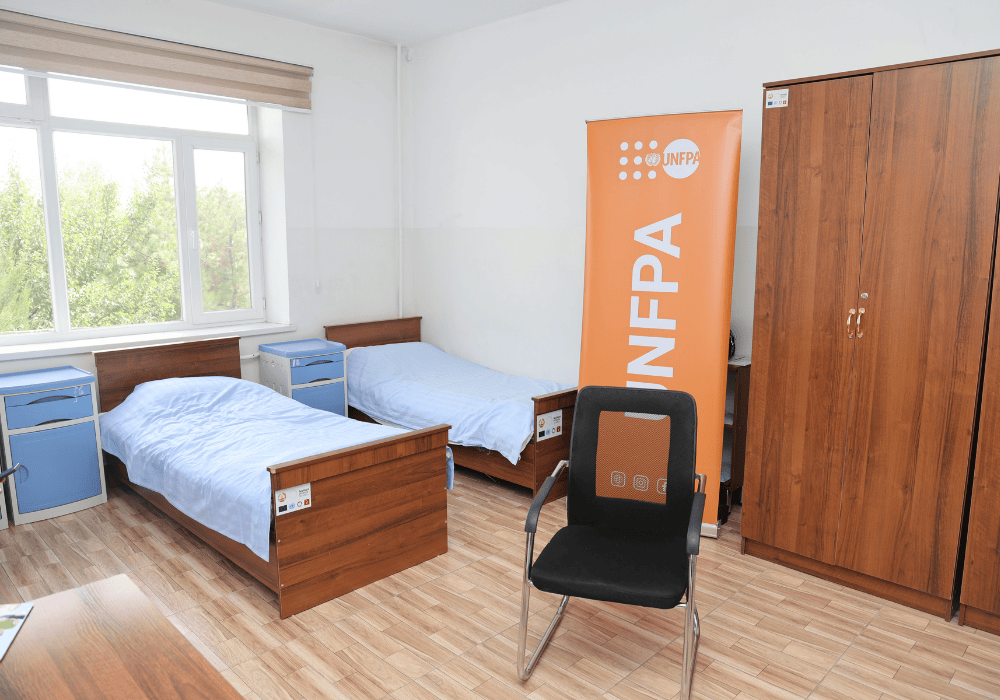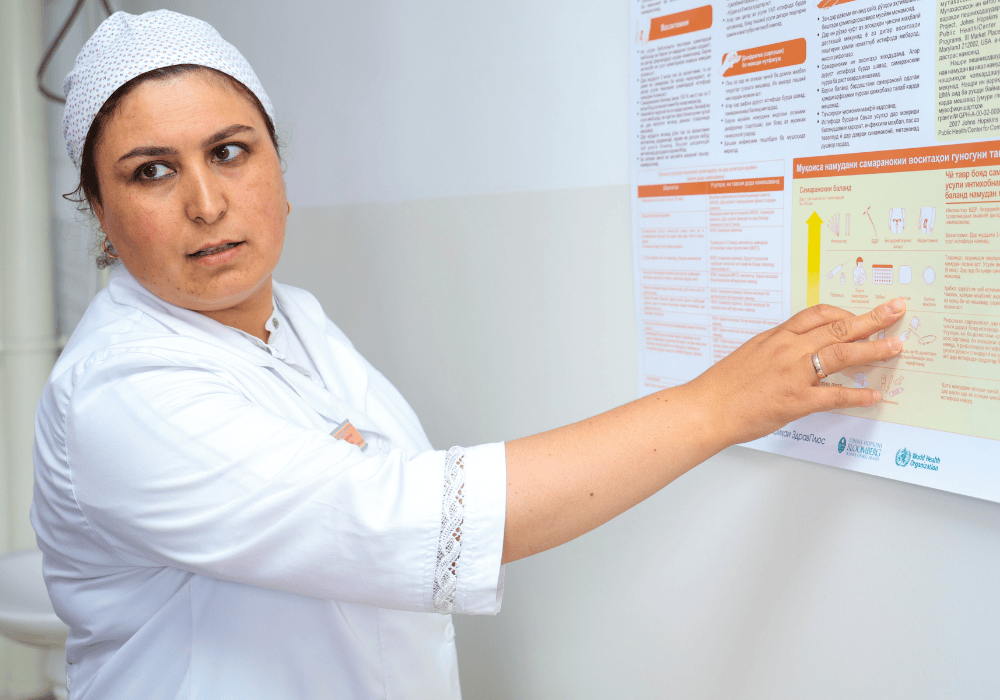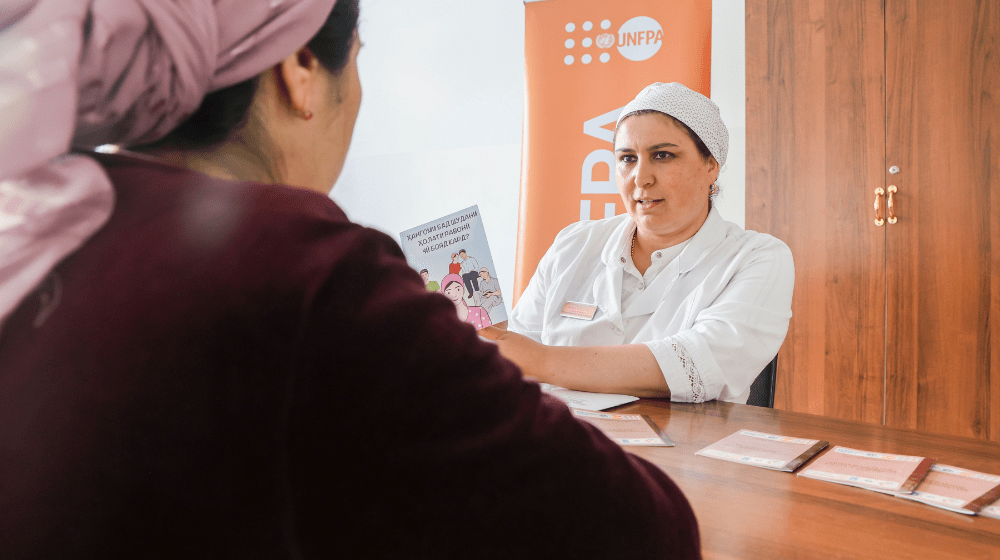RUDAKI, Tajikistan – In the maternity house of western Tajikistan’s Rudaki district, a safe haven exists for survivors of gender-based violence (GBV). Here, within the walls of the Room for Medical and Social Rehabilitation of GBV Survivors, women and girls who have endured unimaginable pain find not only shelter but also a lifeline - a chance to rebuild their lives with dignity.
Dr. Nargis Zokirova, an obstetrician-gynaecologist, has been at the heart of this project since 2021. With compassion and resilience, she has guided GBV survivors through the darkest moments of their lives, providing essential medical care, psychological support and, most importantly, a safe space where they can begin to heal.
One case that deeply moved Dr. Zokirova involved a 16-year-old girl who was pregnant after being sexually assaulted by a neighbour. When she arrived at the GBV survivors’ room, she was too traumatised to speak, her eyes filled with fear and despair. The facility offers everyone free health services, including emergency care, treatment for GBV-related injuries, and HIV and AIDS testing. However, it was Dr. Zokirova’s gentle and compassionate care and unwavering support over time that allowed the young girl to feel comfortable enough to break her silence. The girl shared her harrowing story, and with Dr. Zokirova’s help, she received the medical care, psychological counselling and specialist referrals she desperately needed. The room became her refuge, a place where she could regain her strength and begin to hope for a better future.
UNFPA has established 21 similar rooms across Tajikistan in partnership with the Ministry of Health and Social Protection of the Population. Each one offers a sanctuary for survivors of gender-based violence through a range of essential services, including health care, psychological support, temporary lodging and meals, and referrals to other sectors, all free of charge. This kind of survivor-centred, multi-sectoral response to GBV remains rare in Tajikistan, where protocols and capacity among front-line workers are still limited.
"I was deeply moved by the professionalism, dedication and love provided by Dr. Nargis Zokirova and others to women and girls who have experienced unimaginable trauma," said Florence Bauer, UNFPA Regional Director for Eastern Europe and Central Asia, who visited the facility in June. "These safe spaces embody UNFPA's unwavering commitment to ending gender-based violence and protecting and empowering survivors to rebuild their lives towards a brighter future."

In another case Dr. Zokirova remembered, a 14-year-old girl arrived at the room 22 weeks pregnant, after a sexual assault by her aunt’s husband. Her mother, desperate and heartbroken, had attempted a dangerous at-home abortion, which led to severe health complications. The young girl was brought to the maternity house in critical condition to receive emergency treatment. The doctors were able to save her life and the life of the fetus. Once she was stable, the young girl was referred to the medical and social rehabilitation room for GBV survivors, while authorities arrested and jailed the perpetrator. “When the girl came to us, she was paralysed by shock, silent and suicidal," Dr. Zokirova recalled. “But over time, through our support, she and her mother found a way to rebuild their lives.”
But the work is far from over. More than 40 per cent of women in Tajikistan reported problems even accessing basic health care, particularly in rural areas, according to a Demographic and Health survey. And there are only five shelters in the country providing longer-term care to GBV survivors, three of which are operated by NGOs without any state support. UNFPA has been working to improve these conditions by increasing the quality and coverage of GBV services. Its rooms for GBV survivors are located in districts where no other NGO or government-supported shelters are available, and it is advocating for more state funding for shelters in all regions of the country.

Dr. Zokirova also believes that many more women in her community are suffering in silence, unaware of the available support. She has urged community leaders and local activists to spread the word about the rooms and the services they offer. “If more women knew about our room, we could reach so many more, and perhaps help many more women and girls who are suffering from violence and its consequences,” she said.
Dr. Zokirova said the rooms are a place where GBV survivors can find not only the care they need but also the hope that their future can be different: that they are not alone, and that there is a place where they will always be welcomed with open arms. “The benefit of the room is that it shelters survivors in times of crisis, even when all family members and friends turn their backs on them,” she said. “It gives hope for the future and saves the lives of women and girls.”



